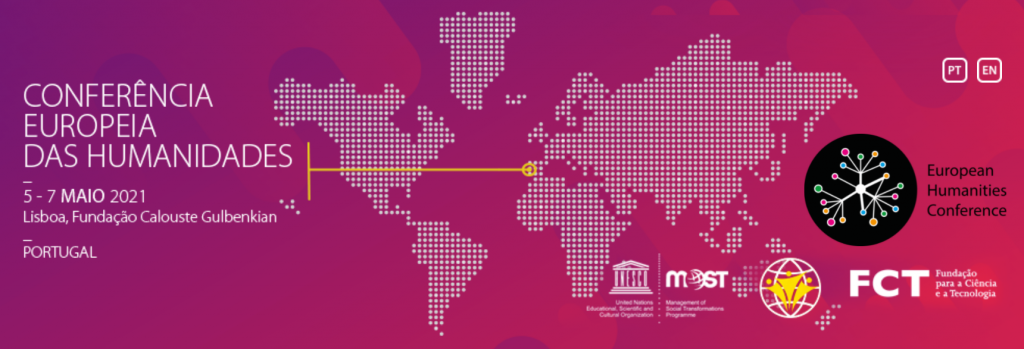
Following the World Conference in August 2017 in Liège, and in response to its final document of recommendations, ratified by the UNESCO General Conference in November of the same year, several regional conferences have been prepared in the various continents and several new international programs are being implemented.
In this context, the European Humanities Conference is co-organized by the International Council for Philosophy and Human Sciences (CIPSH), the Portuguese Foundation for Science and Technology (FCT) and UNESCO’s Social and Human Sciences Programme. The Conference will be held in Portugal, and occurs during the Portuguese Presidency of the Council of the European Union which enhances the scope that the Conference must aim at, in establishing a fruitful dialogue with the European Commission and the various member countries, which may have consequences for drawing national and Community strategies in the field of the Humanities.
The European Conference takes on the field of Humanities as a set of specific methodologies and perspectives of approach but not limited to traditional disciplinary issues. It should focus on cross-cutting themes of society, highlighting the specific contribution of the Humanities to our world, in close cooperation with researchers from other disciplines such as the natural, social, engineering, and medical sciences, to discuss educational and scientific policy as well as processes of societal dissemination of knowledge.
The conference’s central theme highlights European Humanities and Beyond. It considers the development and contribution of the Humanities to societal problems in Europe, assuming an understanding of Europe’s responsibilities beyond its borders. In this field, the conference will highlight interactions with other academic traditions in the world and give priority to collaboration with Africa.

Six specific topics articulate the cross-sectional central theme that raises issues such as climate and environmental changes, the relationship between heritage and historical and identity dynamics, management of urban and low demographic density territories, and legal implications of cultural processes or health and social cohesion. An artistic and cultural programme will complete this cycle of conferences, in connection with the chosen themes:
Photo by Everton Vila on Unsplash